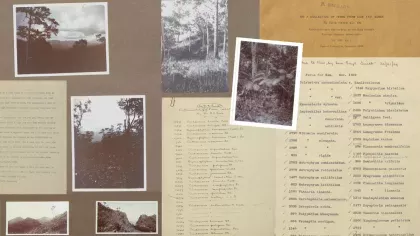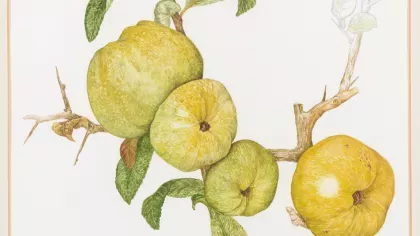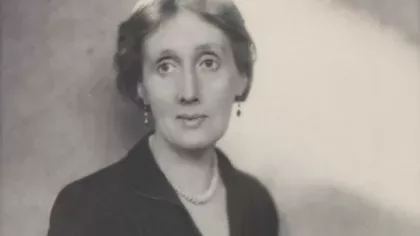27 February 2015
Nicholas Culpeper and his herbal
Nicholas Culpeper, the notorious herbalist, took on a medical stronghold and challenged the idea that medical knowledge should be just for physicians.

Virtues and vices
Nicholas Culpeper, the renowned herbalist, was a man known for his vices as much as for his virtues. He had many enemies, smoked plenty of tobacco, drank, and was known to have kept a loose hand on his 'purse'. Keeping true to his family name (one meaning of 'Culpeper' is 'mischief maker') he was an audacious character who held a strong dislike for the establishment and authority. You can even tell this from reading his publications on plants and their medicinal properties.
Pharmacopoeia Londinensis
In the 16th century, the medical world had reached a crisis point. In London, medical practice was unregulated meaning here were more and more ‘quack’ doctors and false remedies; many relied on sorcery and witchcraft. In 1518, Henry VIII stepped in, issuing a charter which took away the Church's power to regulate medicine and handed it over to a governing body named The Royal College of Physicians. The College excercised full control over the apothecaries (a cross between a pharmacy or chemist and a GP), setting standards and issuing licenses required to practice medicine legally. On 26 April 1618, in a further effort to standardise medical practice, a royal proclamation was circulated ordering all apothecaries to obtain a copy of Pharmacopoeia Londinensis.
Published in Latin, it was required that all pharmacists consult the text, as James I stated:
"[I] command all and singular Apothecaries, within this our realm of ENGLAND or the dominions thereof […] do not compound, or make any Medicine, or medicinal receipt, or praescription; or distil any Oil, or Waters, or other extractions [...] after the ways or means praescribed or directed, by any other books or Dispensatores whatsover [...] not otherwise &c. upon pain of our high displeasure."
- Urdang, Pharmacopoeia Londinensis cited in the The herbalist: Nicholas Culpeper and the fight for medical freedom, by Benjamin Woolley, London: HarperCollins, 2004, p. 57.
However, Pharmocopoeia Londinensis was useless as a text of reference. Most tradesman, though probably educated at grammar school, would have only been taught very basic Latin. As a result, they may have been able to refer to the list of ingredients, but not much else. Also, the text merely listed the ingredients and recipes, intentionally leaving out the actual use of any remedy.
Medicine for the masses
Culpeper though had attended university and was used to reading Latin. This meant he was able to study the text during his apprenticeship at an apothecary and note its many faults. He was approached to write a translation of Pharmacopoeia, and in late August 1649 it was published. At the time, the text caused outrage among physicians who saw it as a way to reveal their medicinal secrets to the ‘common masses’. Culpeper not only translated the text, making it legible to those who could read, but also included recipes alongside their healing properties, meaning the public could access the information and no longer required the expertise of a physician, as Culpeper states:
"...having published in print such a treatise of Herbs and Plants as my Country men may readily make use of, for their own preservation of health or cure of diseases […] that so by the help of my book they may cure themselves, and never beholding to such Physitians as the inquiry of these times affords."
- Culpeper’s English physician; and complete herbal, by Nicholas Culpeper, London: Printed for the author, 1794, p. 34.
To add insult to injury, Culpeper’s text was rife with funny and insulting remarks directed towards the Royal College, highlighting the failings of the original text.
Thanks to the impressive collection of herbals that can be found in Kew’s library stores, I was able to view a copy of Culpeper’s translation from 1653 first hand. One page in particular caught my eye, in which Culpeper recounts instructions from the original text and then goes on to mock them:
"The Colledg] Take of ripe Wood-Strawberries, two pound ; put them in a Phial, and put [so] much small Spirit of Wine to them, that it may oretop them thie thickne[ss] of [y]our fingers ; [s]top the ve[ss]el clo[s]e, and set it in the Sun two daies, then [s]train it and pre[ss] it but gently […] repeat this [s]ix times, at la[s]t keep the cleer Liquor for your u[s]e. Culpeper] A. A gallant fine thing for Gentlemen that have nothing else to do with their money, and it will have a lovely look to plea[s]e their eyes."
- Transcription from Pharmacopoeia Londinensis: or the London dispensatory, by Nicholas Culpeper, London: printed for Peter Cole, 1649, p. 70.
The book was an instant success and - not put off by the severe criticisms he received - Culpeper went on to write The English Physitian, which later became known as Culpeper's Complete Herbal.
Culpeper's Complete Herbal
Written in informal, accessible language, it provided a handy index of ailments, making it easy to find the correct herb for a cure. The tone of the book added to its success and popularity: it was funny, rude, and full of anger. Also, it was very cheap compared to other herbals of the day; Culpeper's was priced at only three pence, the same amount it would have cost to buy a pound of almonds. The price made the text accessible to those with little money, who previously would have relied on the service of expensive physicians. When asked why rival herbals were sold at such a high price Nicholas answered:
"Because of the 'old threadbare Pleas, It would do people harm' to give them access to pharmaceutical information."
- Nicholas Culpeper cited in The herbalist: Nicholas Culpeper and the fight for medical freedom, by Benjamin Woolley, London: HarperCollins, 2004, p. 320.
Affordable, witty and highly practical, Culpeper's herbal went on to become one of the most popular and enduring books in publishing history, so much so that it is still in print today.
- Emily Petch -
Library Graduate Trainee
Further reading
Culpeper’s English physician; and complete herbal, by Nicholas Culpeper, London: Printed for the author, 1794.
The herbalist: Nicholas Culpeper and the fight for medical freedom, by Benjamin Woolley, London: HarperCollins, 2004.
Pharmacopoeia Londinensis: or the London dispensatory, by Nicholas Culpeper, London: printed for Peter Cole, 1649.


